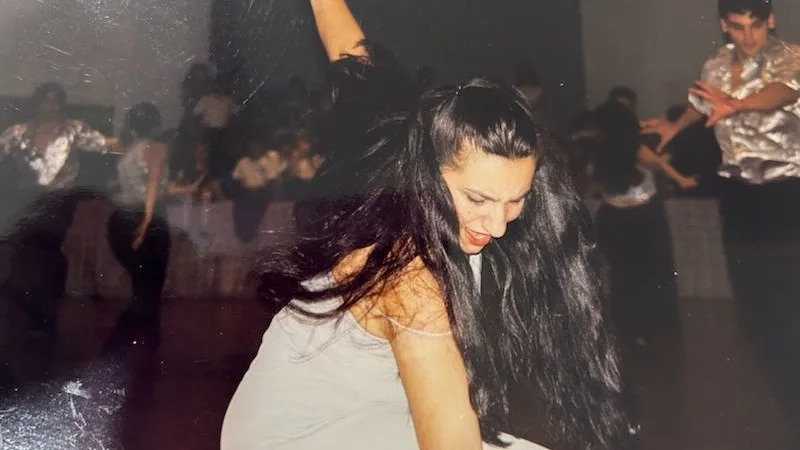“Every man and his dog have something to say about the zeibekiko dance, and I have heard it all,” says dance teacher Sophia Ventouris, highlighting the wide range of opinions, from traditionalists to artists who want to experiment.
The 2nd Zeibekiko Festival Australia, a unique cultural event dedicated to this iconic Greek dance, seeks to embrace all perspectives as it travels to Sydney and Melbourne from Friday, September 27 to Sunday, October 6.
Spearheaded by Sophia, this self-funded project aims to showcase the rich historical tapestry of zeibekiko, tracing its evolution from its roots to its modern interpretations.
Cypriot Zeibekiko master Christos Shakallis, a standout from last year’s festival, returns with performances featuring laika and modernist dances. At the other end of the spectrum is the well-respected Yiannis Pagkozidis, a traditionalist. An expert in Cappadocian song and dance, Pagkozidis has conducted extensive research in zeibekiko and will share his knowledge through performances of zeibekiko, aptilikous and karsilamades.
“Pagkozidis is the extreme opposite of Shakallis,” Sophia says, excited by the prospect of bringing these contrasting styles together.
“We’re committed to changing perceptions about zeibekiko. It’s going to take time, and we won’t change people’s minds overnight.”
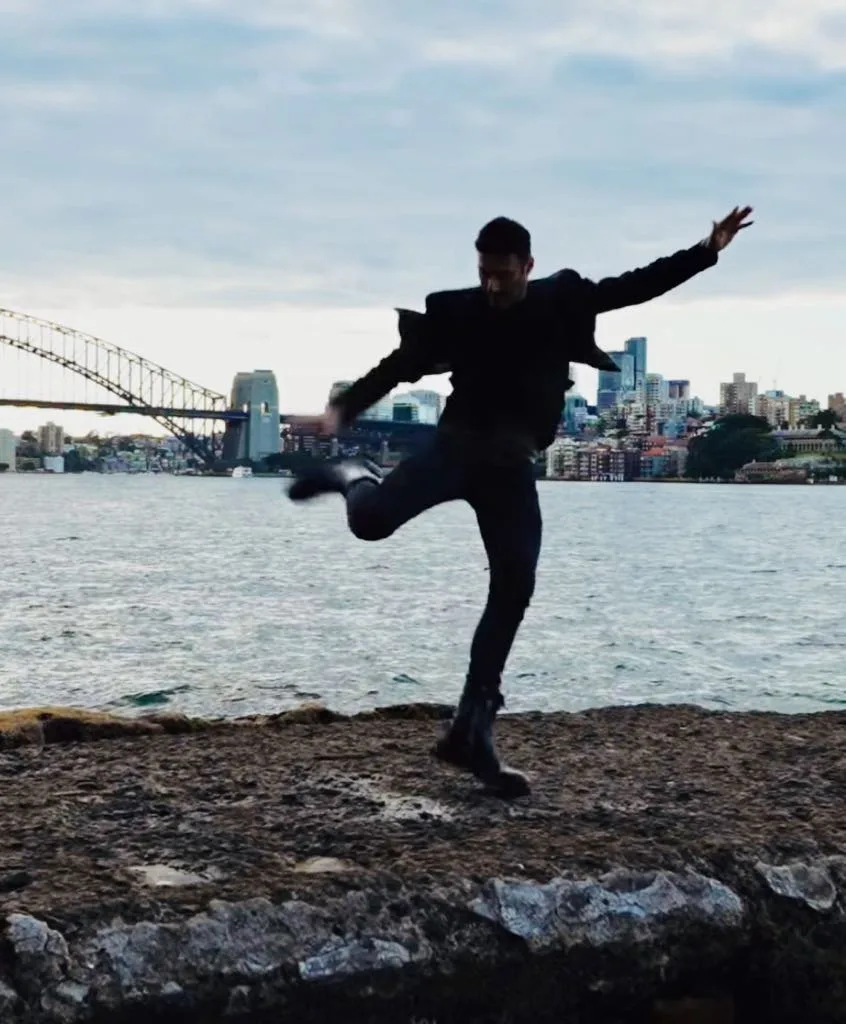
Dark and divine origins
Why zeibekiko and not some other signature Greek dance? Sophia explains that it’s because zeibekiko embodies “everything.”
“It is a profound expression of the human soul, particularly darker emotions—a way of dealing with demons,” she says.
Sophia delves into the dance’s deep roots, exploring the social and cultural contexts that have shaped it. Some experts believe the dance has ancient origins, with its name derived from the Phrygian word “Zey” or “Zeus,” alluding to the almighty, philandering king of the gods of Olympus. She also references folklorist Thanos Veloudis, musicologist Simon Karras, and painter Yannis Tsarouchis, who all agree that zeibekiko took its name from the Zembeks, the Islamised Greeks of Bursa, Aydin, and Erythrae in Asia Minor. Zembeks were gendarmes of the Ottoman Empire, known as “knights of the mountains” and rebellious, traits reflected in the nature of the dance.
“The dance has evolved, reinventing itself in every historical period,” Sophia says, pointing to the rebetiko era when 1,500,000 Greek refugees from Asia Minor flooded Athens and Piraeus.
“These men were outcasts, poor and traumatised. They would go to koutoukia, underground taverns. When a man paid the musicians (kerasma), it was understood that he owned the next few minutes on the dance floor, usually for the duration of the song. If another person got up to dance at the same time, the first dancer would be offended, often leading to a knife fight.”
The staggering, drunken movements resemble a man in pain, dancing to death. But Ventouris explains, “There’s this mistaken idea that zeibekiko is just a drunken man’s dance, but it’s not.”
“It’s about self-improvisation, expression, and a deep connection to the music,” she emphasises.
Adaptability through time
Now a symbol of Greek culture worldwide, the zeibekiko’s ability to adapt to changing social and historical contexts has ensured its survival and continued relevance.
Sophia acknowledges the social gatherings that often led to spontaneous dancing. It was common for people to dance opposite each other, sometimes alone, leading to the emergence of different styles, such as the unique forms in Mytilene like “Molivos” or “zeibekiko tou anemou” (zeibekiko of winds). Women also had their own version of zeibekiko, which differed significantly from how the dance is performed by women today.
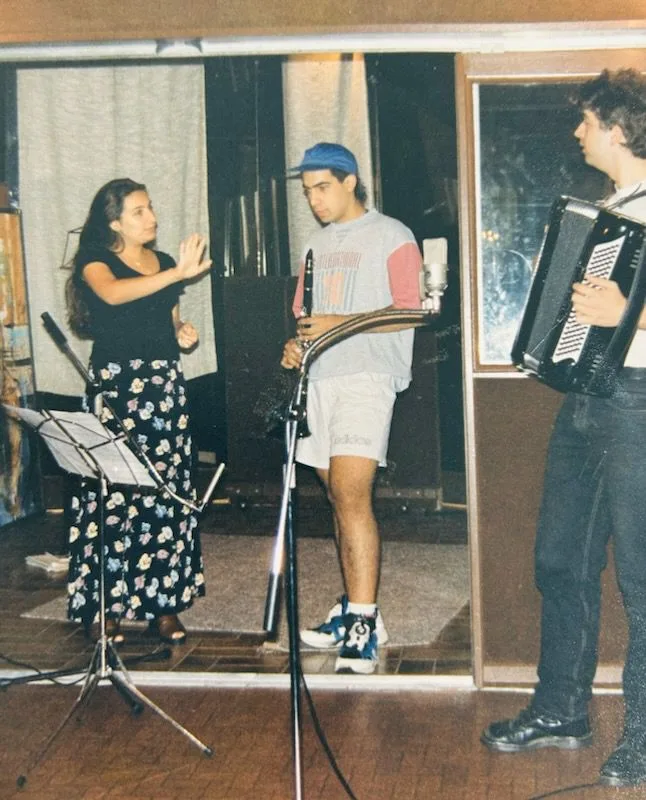
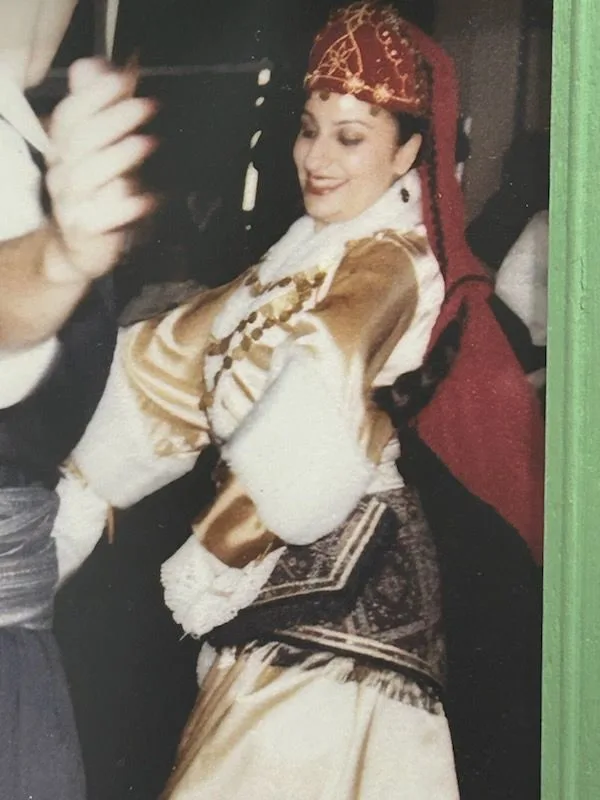
“Back then, women would dress in traditional costumes and dance in a manner that reflected the cultural and social norms of their time,” Sophia says.
“In recent years, the dance has become more inclusive and celebratory. It’s no longer just a man’s expression of pain as it was when danced in koutoukia,” she adds, noting that the dance is just as relevant to the Greek Australian diaspora as it was for Asia Minor refugees.
“For Greek Australians, zeibekiko offers a valuable opportunity to reconnect with our roots.”
Sophia says “the dance has evolved along with our way of life,” but what hasn’t changed is that it continues to be a “deposition of the soul”—a form of therapy through movement.
“People say that you can’t teach zeibekiko, but there is a structure to it,” she notes, pointing to the rhythm of nine-eighths, which also appears in the odes of Sappho, the ancient Greek poetess.
Though it is a “deposition of the soul,” Sophia believes there are movements you can teach to offer students the opportunity to unlock what is innate.
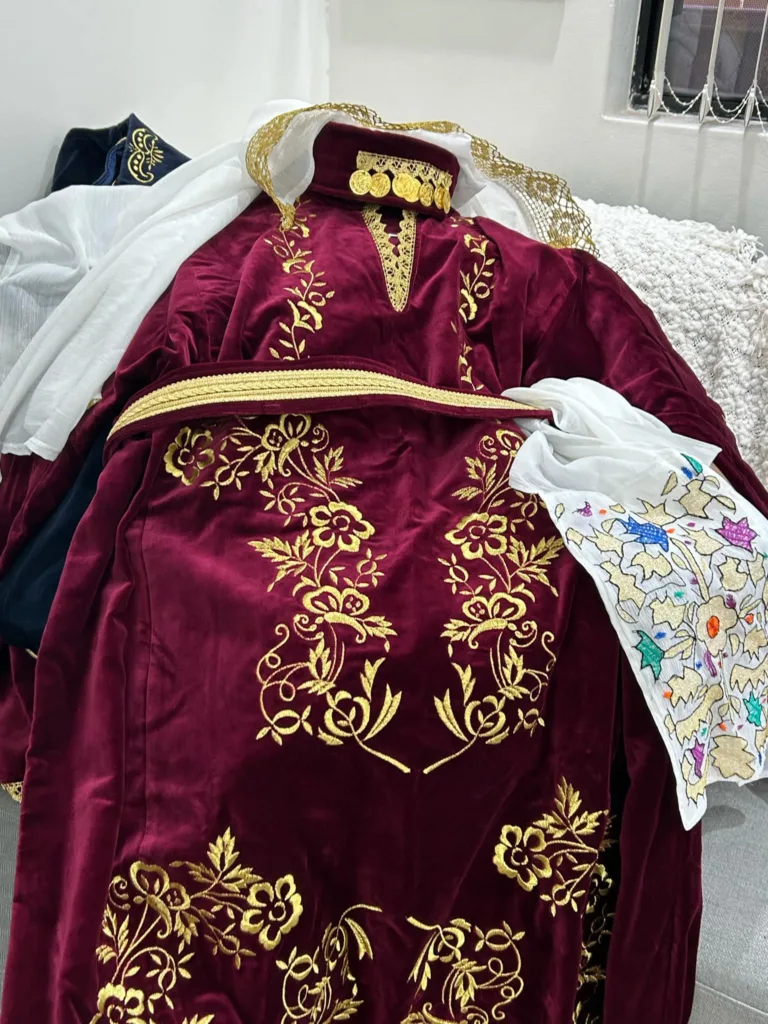
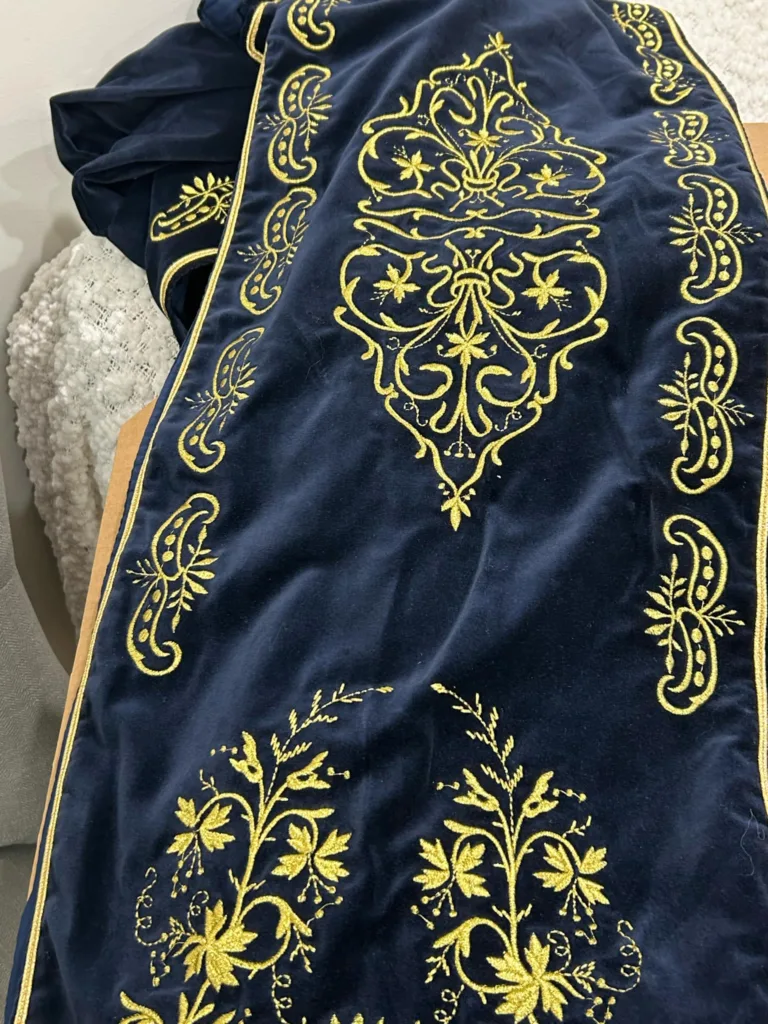
Sell-out events
This year’s festival will feature a variety of events, including workshops, performances, and live music, taking place throughout September and October. For specific dates and locations, please refer to the festival program.
Sophia has also teamed up with renowned rebetiko artist Costa Calamaras, a prominent figure in Melbourne’s rebetiko scene.
“We’re going to do that at the Brunswick Ballroom on October 6,” she announced, noting the event will offer a mix of standing and seated experiences.
“Last year, all our events sold out. The atmosphere was electrifying. Everyone was up, dancing, going crazy.”
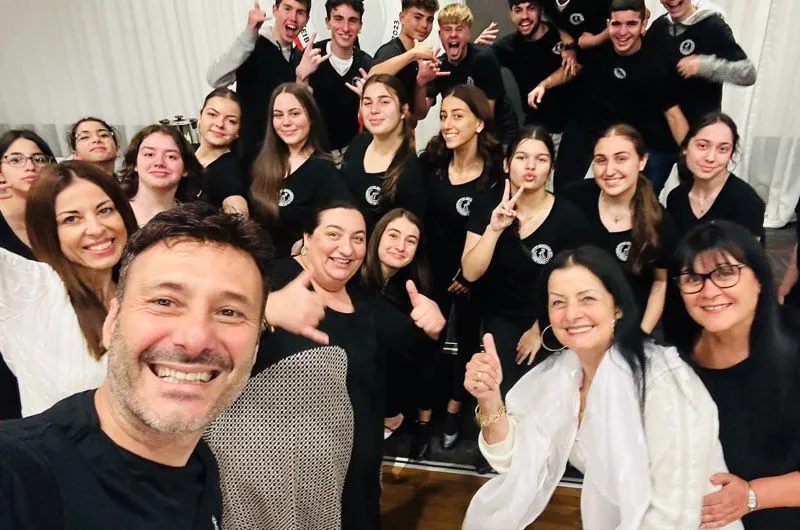
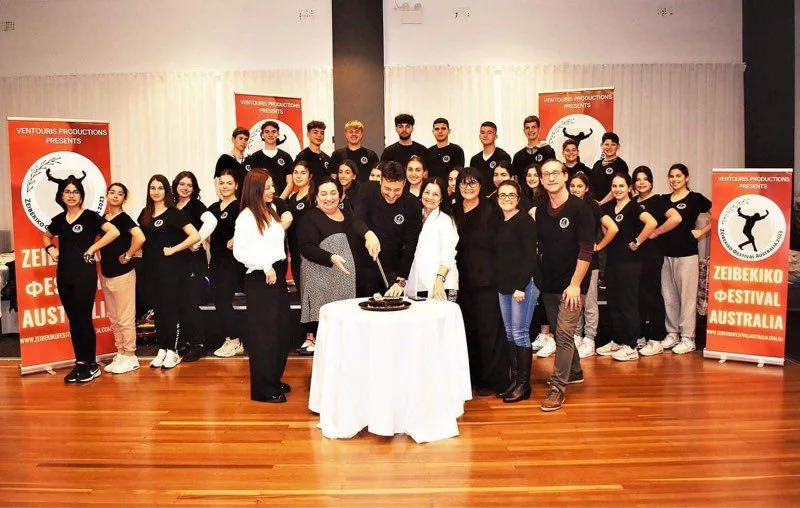
Despite the festival’s success, Sophia faces significant challenges, particularly in terms of funding. The entire event is self-funded, with the money raised just enough to cover expenses.
Sophia also expressed her desire to continue expanding the festival, introducing more types of zeibekiko dances in the future.
As the festival continues to grow, Ventouris remains committed to her vision of fostering a deeper understanding and appreciation of this unique and powerful dance tradition. Whether you’re a seasoned dancer or just curious about Greek culture, the Zeibekiko Festival offers something for everyone, ensuring that the spirit of this dance will thrive for generations to come.
The second Zeibekiko Festival Australia will return with a bang from September 27 this year thanks to Ventouris Productions. Events are being held in Sydney and Melbourne. To book tickets to the Sydney events, click here. To book tickets to the Melbourne event, click here.
If you wish to be a sponsor of this event, or contribute as a performer, business partner or volunteer please call Sophia Ventouris on 0413 114 930. The Greek Herald are proud media partners for this event.
- Instagram: @zeibekiko_festival_australia
- Facebook: https://www.facebook.com/ZeibekikoFestivalAustralia
- Website: www.zeibekikofestivalaustralia.com.au
